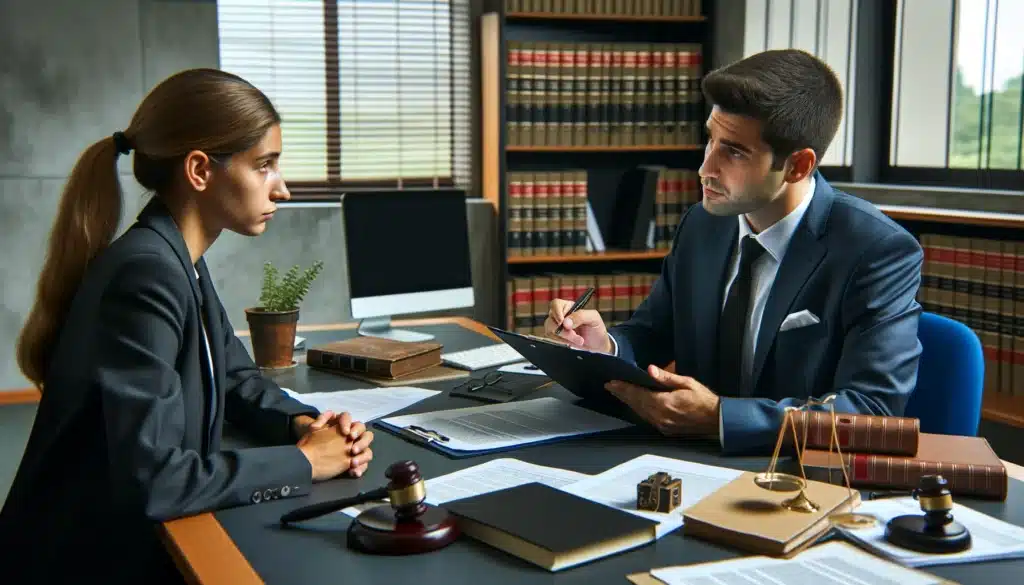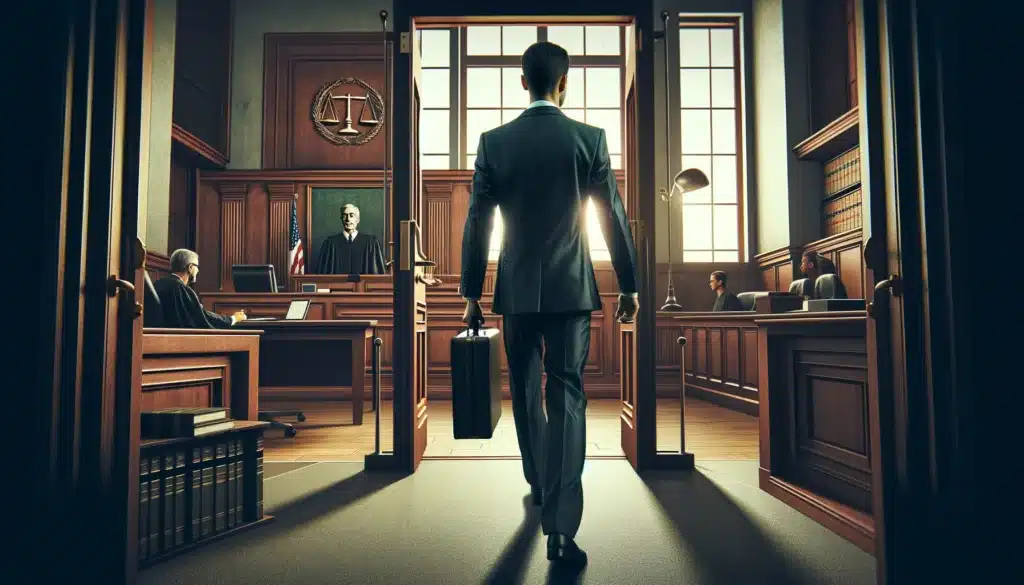Today’s blog post from the Law Office of Bryan Fagan will approach the issue of a CPS case from a different vantage point. Our end goal will be the same as it always is with every blog post we write- to benefit you and your family by providing helpful information about Texas family law. However, we will achieve that goal by sharing with you some information about what your attorney should be doing during your case to help you reach your goals. What does a lawyer do for you in a CPS case?

Obligations of an attorney during your CPS case
You have responsibilities during a legal case, and your attorney does too. To help you win your case (whatever that means to you), your lawyer must fulfill their duties as well as possible.
Your lawyer should meet with you early in your case. If you could hire a private attorney, you have already met with your attorney or at least an attorney who works with their office. If a private attorney is not an option and you’ve been appointed one by a judge, your attorney should contact you soon after the appointment to schedule a meeting.
It wouldn’t hurt you to reach out to your attorney first, but it is your lawyer’s responsibility to speak to you before any court appearances. Every time your attorney contacts you, you should be in a position to have a conversation. If you are out and about, ask the attorney if you can call him back when you are in a quiet place with a pen and paper in front of you. Your attorney is likely to be just as busy as you are – if not more so. You should assume that if he is contacting you regarding your case, it is important. Make sure to call him back if you tell him that you will be doing so.
Your attorney will likely want to meet with you a few days before you go to court. Your lawyer should ask you questions about your case, your life, and your child. Allow him to learn as much as possible about your case before it is time to step in front of a judge.
Your lawyer will meet with the people involved in your case.
Your attorney will interview the caseworker involved in the CPS investigation of your family, the lawyer representing your child’s best interests, and any court-appointed volunteers who meet with your child to assess her well-being. He is responsible for learning how the other people in your case perceive you and your child. With that information, he can develop a method of attack for the courtroom.

What happened, and what didn’t happen to you and your child
Once your attorney has met with you and determined what your side of the story is, his job is to go out into the world and find out what other people are saying as well. Your attorney will need to investigate any physical injuries suffered by your child.
Court documents will be shared with you.
Your attorney must share any correspondence sent out, whether to CPS, the court, another attorney, etc., with you. This is all good and well, but your lawyer needs to take the time to go over these documents with you to explain their purpose and how they can affect your case. You should not be confused about why something was filed or what a sentence or phrase means. A lot of these legal documents are written in a style that most people wouldn’t recognize.
You must understand and agree to any settlements/agreed orders that are put in front of you.
Your lawyer is in charge of guiding you throughout your case but is not in charge of making decisions for you. As such, you should be up to date on all issues of your case so that you can make decisions for yourself. Allow your attorney to provide you with guidance, but ultimately you should be making all of the decisions about the path your case takes.
At the end of a court hearing, the judge will issue written down orders signed off on by all parties to the case. Before you sign the order, your attorney should read through it and ensure that each order reflects exactly what the judge said from the bench. You will very likely be required to perform certain acts in the order, and your lawyer will be responsible for making sure that you understand what the order mandates and that you follow through with the contents of the order.
Your goals do not need to be your attorney’s and vice versa.
There may be aspects of your case where you and your attorney do not see eye to eye. You may disagree with what your attorney is advising you on, and your attorney may disagree with a position you hold. That’s ok. Reasonable people can disagree on things like this. However, your attorney’s job is to guide you based on their experience. Whether or not you agree with that guidance is up to you.
Your attorney will keep your mouth from hurting your case.
There are plenty of opportunities in a CPS case for you to say something that you will regret later on. Your case could last for up to one year, so imagine all of the court dates, meetings, and mediation sessions where you will come face to face with people that may think that you are a bad parent or at the very least question how you run your household. Your attorney needs to help you keep your opinions from getting into the open during one of these events. They need to keep you in control of your emotions during the case.
A CPS case is long, and the stakes are quite high. I can only imagine how I would react to a situation where my future relationship with my children was at stake. However, you will not be well served by trying to instigate or otherwise speak disrespectfully towards another person involved in your case. It will not help your case in any way. It may feel good at the moment but will cause you pain in the long run.
Your attorney will attend court dates and other important events with you.
Anywhere and anyplace you are asked to go for your CPS case, your attorney will be able to go with you. This means that your hearings, mediations, interviews with CPS, and anywhere else relevant to your case, your attorney can go with you. CPS will have internal meetings about your case that you will not be invited to, and therefore your attorney will not be able to attend either.

The most important dates on which your attorney will spend with you are court dates, like hearings and the trial for your case. In advance of any court date where your attorney cannot attend, he or she should let you know ahead of time. He or she will most likely have planned for another attorney with their office to attend in their place. In instances like this, the substitute attorney should contact you beforehand to go over your case and to know what you want to have accomplished in that hearing.
Your lawyer is there to represent you- nothing more, nothing less.
Your attorney is loyal to you and your family. You can rest assured that your attorney is there for you and does not represent the interests of themselves, their firm, the other attorneys, or anyone else in your case. Your communications are to be kept confidential. This means that the content of your conversations with your lawyer will be kept between you and your attorney unless you provide your attorney with permission to speak about those conversations in public.
Finally, your attorney must be able to provide you with competent representation. This means that your attorney must know what he or she is doing and must be able to represent you as well or better than any other attorney who practices in the area of family law.
In what ways can you directly help your attorney fulfill their duties to you?
Your attorney owes you skilled representation, but you also play a crucial role in assisting them. Given your intimate knowledge of the case, providing all relevant information and assistance enhances your attorney’s ability to help your case succeed. Helping your lawyer includes:
Communication. I could end today’s blog post with this helpful hint, and you would be in good shape. If you’re moving, changing your phone number, or will be unavailable for an extended period, inform your attorney promptly. Failing to do so can lead to frustration and wasted time for both parties. Your attorney’s time is valuable, and unnecessary delays can result in additional costs for you.
Plan a few steps in your case before meeting with your lawyer. When you have a meeting set up in a couple of days with your lawyer, you should not spend a few minutes on the drive to their office, planning what you want to discuss. Rather, you should have some talking points ready to go. Ask questions about what your attorney thinks you should be focusing on and have him or her clarify those goals.
Finally, you should keep track of any classes you have taken or completed. Giving your attorney any documents that certify your completion of a class is a good idea, keeping a copy for yourself. The reality is that your attorney has more than just one case to keep track of, but you have only yours. Help your attorney by keeping yourself organized so that when it is time to provide him or her with documents or information, you can readily assist them.
More ways to help your CPS lawyer will be discussed in tomorrow’s blog post.
If you care to join us tomorrow (and I believe that you should), we will further discuss the subject of how you can help your attorney during a CPS case. In the meantime, if you have any questions about the material that we have covered today, then please contact the Law Office of Bryan Fagan. We offer free of charge consultations with our licensed family law attorneys six days a week. These consultations are a great place to ask questions and receive feedback about you and your case.
Our attorneys and staff take a great deal of pride in being able to represent our fellow Texans. Help is only a phone call away, and we appreciate your consideration and time in spending part of your day with us here on our blog.
Ebook
 If you want to know more about what you can do, CLICK the button below to get your FREE E-book: “Child Protective Services E-Book”
If you want to know more about what you can do, CLICK the button below to get your FREE E-book: “Child Protective Services E-Book”
Other Articles you may be interested in:
- What to Do When CPS Asks for a Drug Test in Texas
- CPS and how The Law Office of Bryan Fagan, PLLC can help
- Take control of your child’s CPS case by following these tips
- How to stand up for yourself during a Texas CPS case
- How to prevent a second CPS investigation after your first concludes
- Family Law Cases in Texas: The final stages of a CPS case
- When can CPS remove your child from your home in Texas and what can you do about it?
- What to do if you no longer like your CPS service plan?
- In what circumstances could your child end up living with your relative during a CPS case?
- What can a CPS investigation into your family mean now and in the future?
- What to do if your spouse is being investigated by CPS in Texas for abuse or neglect of your child?
- Can CPS photograph your house and request your child’s medical records in Texas?
Frequently Asked Questions
What does “reason to believe” mean in a CPS case?
What type of lawyer do I need to sue CPS in Texas?
How long can CPS keep a case open in Texas?
How long does CPS have to investigate in Texas?
What is credible evidence of abuse?
How to fight CPS and win in Texas?
Can you find out who reported you to CPS in Texas?
Can CPS take a child without a court order in Texas?
Law Office of Bryan Fagan, PLLC | Houston, Texas CPS Defense Lawyers
The Law Office of Bryan Fagan, PLLC routinely handles matters that affect children and families. If you have questions regarding CPS, it’s important to speak with one of our Houston, TX CPS defense Lawyers right away to protect your rights.
Our CPS defense lawyers in Houston TX are skilled at listening to your goals during this trying process and developing a strategy to meet those goals. Contact the Law Office of Bryan Fagan, PLLC by calling (281) 810-9760 or submit your contact information in our online form. The Law Office of Bryan Fagan, PLLC handles CPS defense cases in Houston, Texas, Cypress, Klein, Humble, Kingwood, Tomball, The Woodlands, the FM 1960 area, or surrounding areas, including Harris County, Montgomery County, Liberty County, Chambers County, Galveston County, Brazoria County, Fort Bend County, and Waller County.
Bryan Fagan, a native of Atascocita, Texas, is a dedicated family law attorney inspired by John Grisham’s “The Pelican Brief.” He is the first lawyer in his family, which includes two adopted brothers. Bryan’s commitment to family is personal and professional; he cared for his grandmother with Alzheimer’s while completing his degree and attended the South Texas College of Law at night.
Married with three children, Bryan’s personal experiences enrich his understanding of family dynamics, which is central to his legal practice. He specializes in family law, offering innovative and efficient legal services. A certified member of the College of the State Bar of Texas, Bryan is part of an elite group of legal professionals committed to ongoing education and high-level expertise.
His legal practice covers divorce, custody disputes, property disputes, adoption, paternity, and mediation. Bryan is also experienced in drafting marital property agreements. He leads a team dedicated to complex family law cases and protecting families from false CPS allegations.
Based in Houston, Bryan is active in the Houston Family Law Sector of the Houston Bar Association and various family law groups in Texas. His deep understanding of family values and his professional dedication make him a compassionate advocate for families navigating Texas family law.




